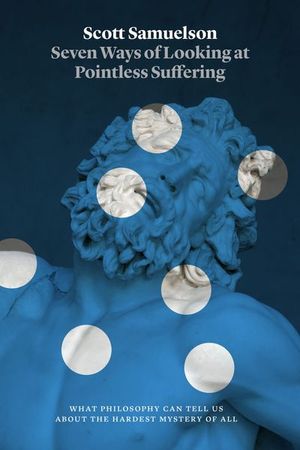Seven Ways of Looking at Pointless Suffering
Published by The University of Chicago Press
This philosophical inquiry into the problem of human suffering is “insightful, informative and deeply humane . . . a genuine pleasure to read” (Times Higher Education).
Suffering is an inescapable part of the human condition—which leads to a question that has proved just as inescapable throughout the centuries: Why? In Seven Ways of Looking at Pointless Suffering, Scott Samuelson tackles this fundamental question. To do so, he travels through the history of philosophy and religion, while attending closely to the world we live in. Samuelson draws insight from sources that range from Confucius to Bugs Bunny, and from his time teaching philosophy to prisoners to Hannah Arendt’s attempts to come to terms with the Holocaust.
Samuelson guides us through various attempts to explain why we suffer, explores the many ways we try to minimize or eliminate suffering, and examines people’s approaches to living with pointless suffering. Ultimately, Samuelson shows, to be fully human means to acknowledge a mysterious paradox: we must simultaneously accept suffering and oppose it. And understanding that is itself a step towards acceptance.
Suffering is an inescapable part of the human condition—which leads to a question that has proved just as inescapable throughout the centuries: Why? In Seven Ways of Looking at Pointless Suffering, Scott Samuelson tackles this fundamental question. To do so, he travels through the history of philosophy and religion, while attending closely to the world we live in. Samuelson draws insight from sources that range from Confucius to Bugs Bunny, and from his time teaching philosophy to prisoners to Hannah Arendt’s attempts to come to terms with the Holocaust.
Samuelson guides us through various attempts to explain why we suffer, explores the many ways we try to minimize or eliminate suffering, and examines people’s approaches to living with pointless suffering. Ultimately, Samuelson shows, to be fully human means to acknowledge a mysterious paradox: we must simultaneously accept suffering and oppose it. And understanding that is itself a step towards acceptance.
BUY NOW FROM
COMMUNITY REVIEWS

